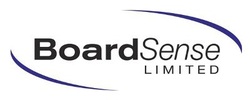Common stakeholder theory has been applied to for-profit companies that believe they have obligations to other groups beyond the owners and stockholders. In the nonprofit world, the development of a clear stakeholder philosophy didn’t appear until governance became a central conversation. But even then it wasn’t until steward leadership was applied to nonprofit governance that a clear understanding of stakeholder accountability was identified. The primary issues that have come out of steward leadership and stakeholder accountability have been the following:
- Who are the potential stakeholder groups of our organization?
- How do we prioritize the various stakeholders in terms of their relationship with the organization and our accountability to them as steward leaders?
- How do we specifically fulfill our accountability to the stakeholders?
When it comes to identifying the other human stakeholders of a nonprofit, a board should engage in a lengthy discussion about potential stakeholders, listing as many as come to mind that fulfill the definition of a stakeholder as a person or group that expressively affects or has a significant interest in the organization and its outcomes.
The resulting list will be longer than a board can reasonably attend to, so a process of prioritization is necessary. This involves evaluating each potential stakeholder group in terms of the degree to which that group directly affects the organization, has special interest in its outcomes, or is deserving of specific accountability. Certain groups might appear at the head of the list that John Carver in Policy Governance calls “moral owners,” or those that have clear accountability required from the organization because they are members, advisory groups, etc. Others that can be key stakeholders are donors, supporting/partnering organizations, community or governmental supporters, and possibly even family members of constituents.
Once a prioritized list of stakeholders is identified, the third question needs to be answered: How do we define and fulfill our accountability to each stakeholder group as the steward leaders of the organization? That conversation should be specific to each group, identifying exactly what levels of information and communication will be involved, integrating the commitments with repeatable processes that are sustained over time, and defining which steward leader (board, executive director or staff) is responsible.
Unfortunately, in practice most stakeholders often get the same generic quarterly or annual reports with little customized communication that addresses the specific needs they may have. Accountability is more than just published reports: it’s also listening, tailoring specific information to different groups, addressing outcomes more than activities, and most of all, it’s about building relationship.
Grateful thanks to Kent Wilson (PhD), a leadership coach and nonprofit leadership specialist.


 RSS Feed
RSS Feed
